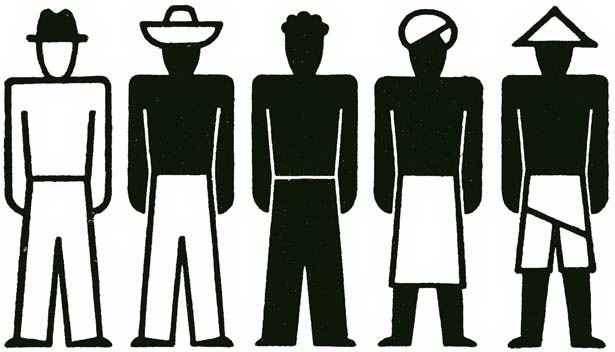
Revolution, a collaborative novel that combines America Today, Ancient China, Revolutionary France and France Today, is revolutionary in a number of senses: it encompasses political revolution; it goes round and round from topic to topic; it connects things that cannot in fact be connected, perhaps as a way of reflecting on the process of transmigration (its Chinese translators have so rendered its title: Lun Hui). Like This, which juxtaposes medieval Japan and ancient Rome, Revolution plays different cultural fields off against one another, a common procedure in the Sentence. To Dan Boord, a student, were portioned out the topics of America Today and Revolutionary France, as MM took up Ancient China and France Today. By turns Morrison wrote his chapters in Paris, while Boord wrote his in Norman. The original result is the Sentence’s first work in prose, though in a highly charged medium, so little like the novel that a five-chapter Chinese-English redaction has been subtitled “A Menippean Satire.” Revolution re-imagines prose fiction as a form of poetry, as an avant-garde enactment. Like A it is a factualization of literary process, a literalization of autobiography, inscribed not in memory but in the moment, as so many of Morrison’s subsequent books will be. It represents the beginning of a process whereby MM works through the tradition of prose (history, fiction, modern epic), as he had earlier revised the tradition of verse.
The full text of Revolution

The arduous task of translating Revolution into Chinese was begun by Gao Jia-xing, at the time an eighteen-year-old student of chemistry at Cheng Gong University in Tainan, Taiwan, which MM had visited for a reading (of "Ten Poems from Second") and lecture (on Homer) in 1983. During trips to Taipei, Gao worked with MM to translate Chapters 2, 6 and 9 of the original English twelve-chapter version. Cai Yuan-huang, a professor at National Taiwan University, corrected Gao's translations and identified one of his own students, Shen Li-huan of Hong Kong, to translate Chapter 8. Professor Cai later corrected Shen's work. Then he himself translated Chapter 4. It had taken MM a decade (beginning in 1976, when he and Dan Boord had completed the original version of Revolution) to find a publisher for the English text, which Bookman Books (Shu Lin) of Taipei brought out in 1985. It required thirteen more years to find a publisher, again in Taipei, for a freshly edited, five-chapter bilingual English-Chinese edition, which East & West brought out in 1998.
Gao Se-ru entered the five Chinese chapters, harmonizing the work of Gao Jia-xing, Cai and Shen; from Verona, Italy, Giorgio Gaetano Adami contributed a full-cover design in black-and-white, which Li Ruo-mei in Taipei colored. MM entered the English text. Jacob, his son, formatted in digital form the Chinese and English texts, front matter, cover and flaps. After thirteen consecutive Saturdays of labor by four participants in the project MM's Revolution/Lun Hui was published. Next, in Brest, Ani Mével, a retired English teacher, volunteered to undertake a translation into French. In Tunis, Nasirudeen Albani entered her handwritten version digitally. In Jomtien, Gaetan Pelletier labored one season with MM to improve the Mével version, turning much of its dialogue into a rough-and-ready Canadian French. Finally, through Tom Johnson, a Yale classmate living in Paris, MM located Dominique Letellier, a professional translator living in New York. She completely revised the manuscript, turning it into lively, contemporary, idiomatic Parisian French.
Chapters 2, 4, 6, 8, 9 and 11 of the original text are those that MM had written. The English, Chinese and French texts of MM’s Revolution all omit Chapter 11 of the original Revolution, so that the shortened versions may begin and end with the Chinese character Jen. It remains now to reissue the out-of-print twelve-chapter English original and to find expert translators to complete a twelve-chapter Chinese version and a twelve-chapter French version.
* These are titled, in Chinese, Lun Hui; in French, Révolution; in English, MM's Revolution. The first two are posted here. For the English version the reader need only refer to chapters 2, 4, 6, 8 and 9 in the full text of the original twelve-chapter version of Revolution.
The full text of 輪迴, the five-chapter Chinese translation of Revolution
The full text of Révolution, the five-chapter French translation of Revolution